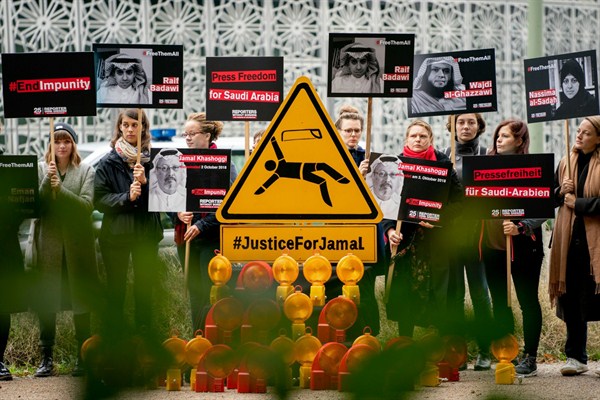In October 2017, an unlikely pair of Saudi expatriates began exchanging messages on WhatsApp. Omar Abdulaziz was a dissident YouTuber in Canada in his 20s, well-known for his satirical videos that mocked the Saudi leadership. Jamal Khashoggi, 30 years older and more of a moderate, was a prominent Saudi journalist who had grown increasingly alarmed by the kingdom’s crackdown on dissent. Having gone into self-imposed exile in Washington in June 2017, Khashoggi used his newfound perch as a Washington Post columnist to criticize the worsening human rights situation under Mohammed bin Salman, Saudi Arabia’s young crown prince and de facto ruler.
In their chats, Abdulaziz and Khashoggi shared their concerns about the online armies of bots and trolls that had taken over Saudi social media, especially Twitter, harassing activists and churning out propaganda in support of the Saudi royal family as part of an industrial-scale PR operation. Soon, their conversations turned to how they could counter the bots and reclaim Saudi Twitter for real users and dissidents like themselves.
“They were very different people,” said Kristian Coates Ulrichsen, a Middle East fellow at Rice University’s Baker Institute for Public Policy. “Khashoggi was for decades the Saudi insider who was loyal to the Saudi government. Omar Abdulaziz was much more of a dissident, working from the outside. But gradually their paths converged.”

